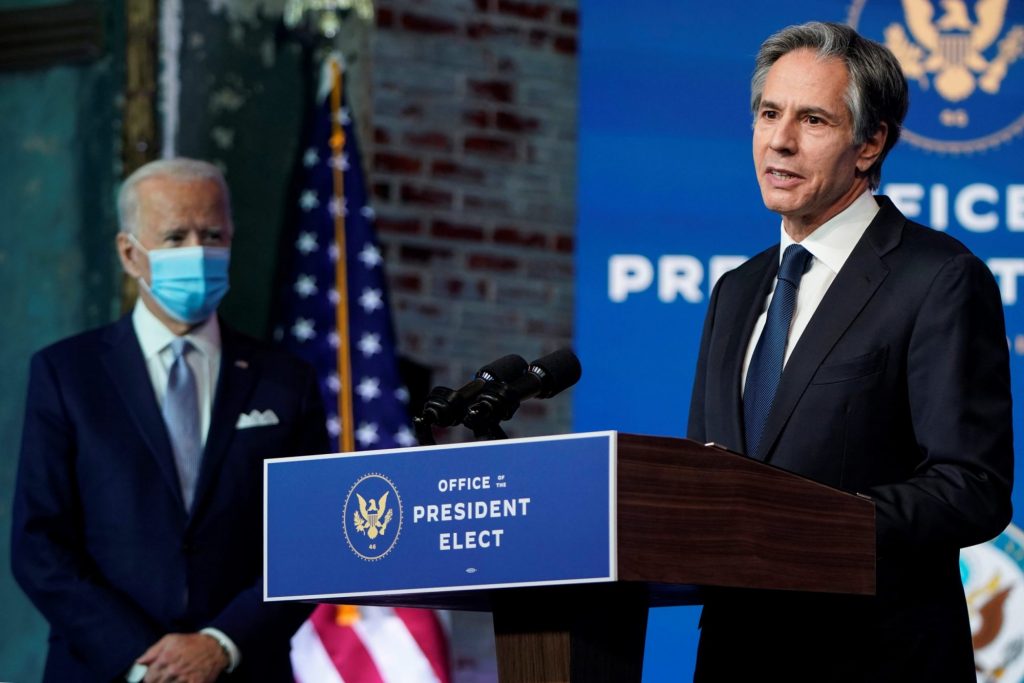
- ARAB NEWS
- 12 Jul 2025

The decision by Saudi Arabia, the UAE, Bahrain and Egypt to restore ties with Qatar during the 41st Gulf Cooperation Council (GCC) Summit at AlUla marks the end of a dispute that has divided the Gulf region for more than three years. It was also some good news in what has already been a tumultuous start to 2021 in much of the world. Not only will the region benefit from this resolution, but it will also offer up new opportunities for US engagement in the region.
For the US, it is important that the region be united, and not divided. There is no shortage of security challenges in the Gulf. Additionally, regional economic recovery in the post-coronavirus era will, at least in part, depend upon all countries in the region working closely together.
However, there is one area where the US can really take a leadership role now that the rift between the Gulf states has ended. This is with the creation of the Middle East Strategic Alliance (MESA). The idea of forming a new pact between the US and the Gulf states emerged publicly during US President Donald Trump’s May 2017 trip to Saudi Arabia for the Riyadh summit.
The Trump administration shared the region’s concerns about Iran’s hegemonic regional ambitions and embraced the concept of a multilateral security organization that could also enhance strategic cooperation against Daesh and other extremist threats. However, after the bitter dispute between Qatar and its neighbors erupted in 2017, the plan for MESA was put on hold.
Now that the Gulf dispute has been resolved, the incoming Joe Biden administration should pick up where the Trump administration left off — and push for the creation of MESA or a similar type of organization.
Perhaps Biden will want to call it something else. No doubt, he will want to put his own brand on it. However, just because the idea originated during the Trump administration does not mean Biden should reject the initiative out of hand. Any effort to improve US-Gulf relations is a noble one and should be pursued.
But even with the end of the Gulf dispute, the Biden administration faces three main obstacles getting the countries of the GCC to sing from the same sheet of music when it comes to important matters such as security, energy and economic issues. For example, when it was first proposed by the Trump administration, there was no clear Arab consensus on what MESA’s mission should be. Some wanted the focus to be on security, others on trade and economics. These issues are not mutually exclusive, and a well-rounded MESA should focus on security, economics, trade and energy. The Biden administration should make it clear that all these issues have to be addressed.
Secondly, even with the Gulf dispute resolved, there still remains a residual lack of trust among some of the Gulf states that dates back for decades. For example, Gulf countries have traditionally preferred to maintain bilateral relationships with the US and generally have shunned multilateral arrangements because of the lack of trust among Arab states.
Finally, there is a lack of agreement on the main threats to the region. At one end of the spectrum, Bahrain, Saudi Arabia and the UAE take a tough view of the threat from Iran. Oman and Qatar, the former of which prides itself on its regional neutrality, and the latter of which shares natural gas fields with Iran, maintain cordial relations with Tehran. Kuwait tends to fall somewhere in the middle. This complicates the ability to form an alliance such as MESA.
So, what can an incoming Biden administration do? It should lay the strong foundations on which a future MESA can be built. This will require clarity and leadership from the US side.
One of the main criticisms from Gulf officials regarding the US approach over recent years was that even the Trump administration did not know what it really wanted from MESA. The Biden administration should start by forging a broad consensus on the mission, division of labor, and long-term goals of the proposed alliance. Serious talks could then follow.
In order to help build consensus inside the GCC on security issues, the US should focus less on specific threats and more on improving military capabilities. Some in the region see Iran as the biggest threat. Others do not.
The US is also worried about the increasing role of Russia and China in the region while that is seen to be a lesser concern for the Gulf states.
Instead of focusing on a specific threat or country, which will never enjoy a Gulf consensus, the US should identify key military, security and intelligence gathering capability gaps that all the countries can address together. This will allow MESA to be prepared for all security threats to the region.
All eyes in the Gulf will be on the incoming Biden administration. Many countries in the region felt betrayed by former US President Barack Obama’s failed rapprochement with Iran. Of course, then Vice President Joe Biden was a strong advocate of the Iran nuclear deal and campaigned on restoring America’s participation in it.
However, the world has changed since 2016 and Biden needs to recognize this. For the Gulf, a good first step by the Biden administration would be to reach out to the countries in the region and improve US relations there. The Trump administration’s MESA proposal would be a good place to start.